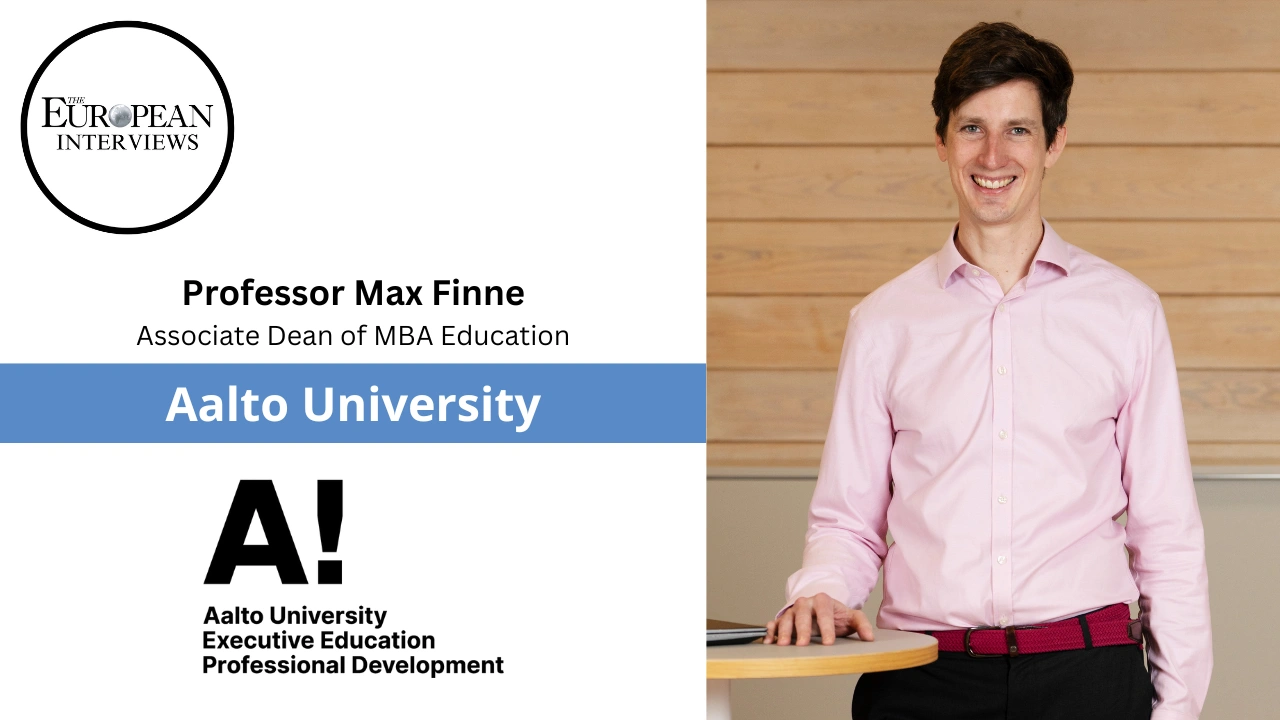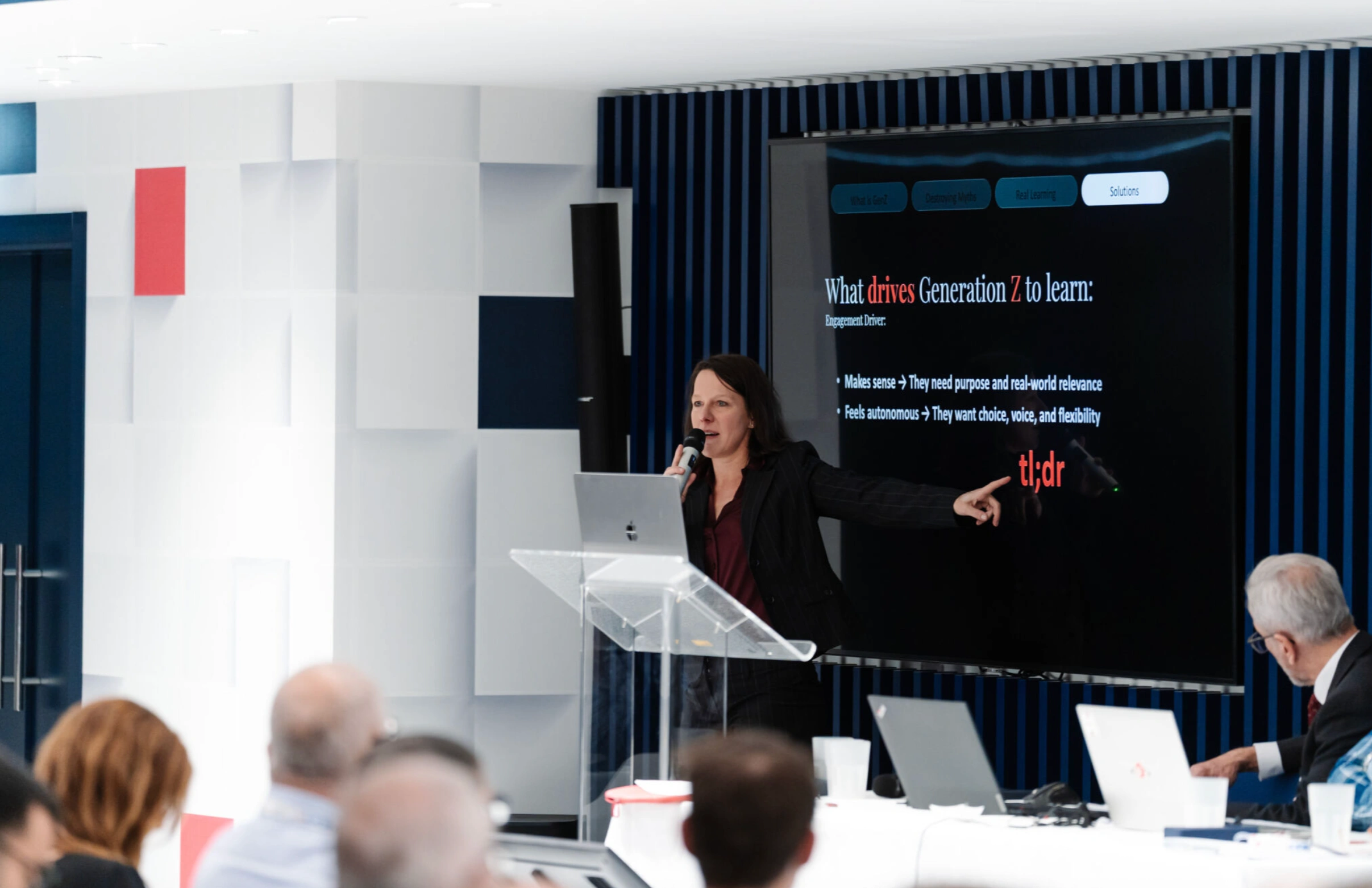Providing leaders with what they need to thrive

John E. Kaye
- Published
- Executive Education, Home

Through our work with thousands of global executives, we’ve learned that even exemplary organisations watch leaders fail because they can’t find a way to tell them something is wrong. So, what’s happening?
To find out, we reviewed an international sample of leaders’ performance (annual reviews, 360°s, engagement scores, and operational results) and interviewed eight stakeholders each for their insights. The interviews revealed a significant disconnect. Many leaders with glowing reviews were seen as arrogant, distracted from key priorities and often insensitive. Some stakeholders told us they were leaving as a result of these negative relationships. When we debriefed our sampled leaders, they expressed surprise or shock – nobody had provided relevant feedback. e problem was even more significant for women leaders, which could exacerbate gender parity issues. Women were often seen as not having enough substantial strategic conversations to be considered for senior roles.
Self-awareness is the most significant predictor of leadership success, yet organisations vary widely in their ability to foster this critical skill. Our work has shown that peoples’ mindsets and faulty assumptions interfere with self-awareness. People need more than formal performance management systems. Employees require information and feedback from stakeholders to succeed, in a manner that is consistent and free from bias and hidden agendas. Frequently applied approaches, such as 360°s, 720°s, performance pulsing, and “crucial conversations” are only a partial solution. They typically drive short-term adjustments in behaviour to meet the metric, rather than engendering a culture of feedback and learning. Top leaders require “thought partners” to help them challenge their view of the enterprise and develop shifts in mindset to establish a supportive values-based feedback culture. As in a sports match, champion athletes watch the score and statistics – and they review video footage and use visualisation to challenge their mindset.
Trusted advisors and executive education bridge that gap, working confidentially with stakeholders to collect honest feedback, set clear developmental goals, and support the leaders’ growth. IT and artificial intelligence (AI) have a role as well, providing support for the new practices. When successful, the result proves to be a changed culture of people who live in a rich environment of learning, feedback, and encouragement.
Further information
RECENT ARTICLES
-
 Hannu Tihinen on strategy, leadership, and the value of an EMBA
Hannu Tihinen on strategy, leadership, and the value of an EMBA -
 European MBAs adapt to AI as Aalto overhauls executive education
European MBAs adapt to AI as Aalto overhauls executive education -
 From dialogue to action: how emba X prepares leaders for a new era of responsible innovation
From dialogue to action: how emba X prepares leaders for a new era of responsible innovation -
 How Europe can learn faster: turning AI into safer, smarter adult training
How Europe can learn faster: turning AI into safer, smarter adult training -
 Aalto EE launches Aalto Tech EMBA to equip executives for digital transformation
Aalto EE launches Aalto Tech EMBA to equip executives for digital transformation -
 Supply chains are being remade. Leadership must be too
Supply chains are being remade. Leadership must be too -
 Why the real barrier to AI success sits in the boardroom
Why the real barrier to AI success sits in the boardroom -
 ETH Zurich and the University of St.Gallen redefine executive education with emba X, a new model of responsible leadership
ETH Zurich and the University of St.Gallen redefine executive education with emba X, a new model of responsible leadership -
 Why leadership is the strongest defence in South Africa’s schools
Why leadership is the strongest defence in South Africa’s schools -
 Porto Business School launches executive programme on AI strategy
Porto Business School launches executive programme on AI strategy -
 POLIMI Graduate School of Management strengthens global reputation in MBA and master’s rankings
POLIMI Graduate School of Management strengthens global reputation in MBA and master’s rankings -
 Trinity Business School strengthens standing in global MBA rankings
Trinity Business School strengthens standing in global MBA rankings -
 Meet the class of 2025… and their children. Why mid-life university learning is on the rise
Meet the class of 2025… and their children. Why mid-life university learning is on the rise -
 University of Michigan launches executive programme for chief data and AI officers
University of Michigan launches executive programme for chief data and AI officers -
 International education: A vision for global citizens
International education: A vision for global citizens -
 How to create lasting social change? Build a community
How to create lasting social change? Build a community -
 Tomorrow’s world needs Dyslexic Thinking
Tomorrow’s world needs Dyslexic Thinking -
 Why family therapy is the best investment you can ever make
Why family therapy is the best investment you can ever make -
 How EQ can give us the edge over AI
How EQ can give us the edge over AI -
 A true root and branch approach
A true root and branch approach -
 It's fine to say you're not ok
It's fine to say you're not ok -
 Are you willing to change with your organisation?
Are you willing to change with your organisation? -
 Emerging markets: Online learning for women unlocks economic potential
Emerging markets: Online learning for women unlocks economic potential -
 A programme of urgent importance
A programme of urgent importance -
 Why progress is not parity
Why progress is not parity



























